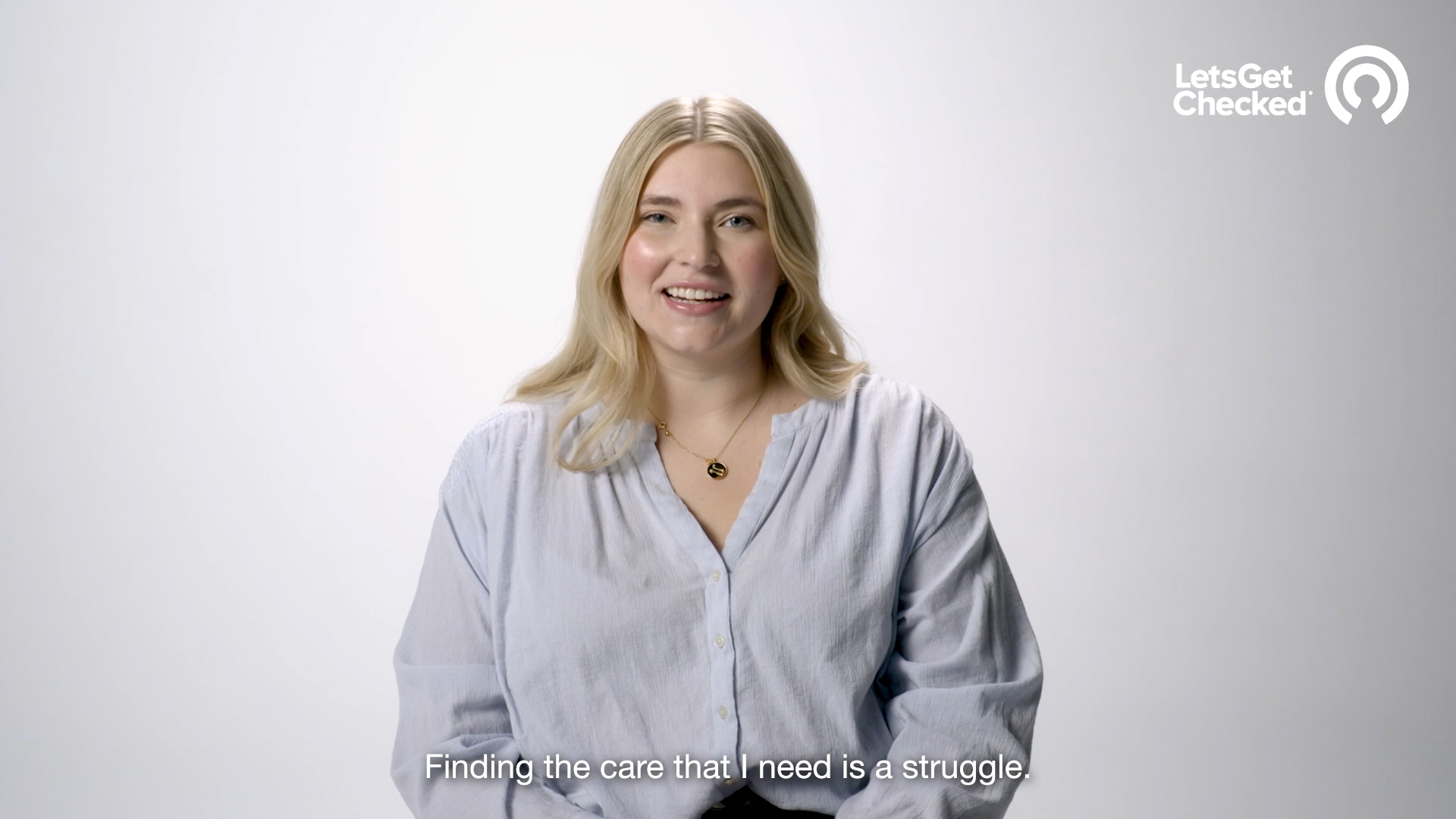LetsGetChecked’s Nationwide Survey Uncovers Realities of Health Inequities in America Today and Proposes Solutions to Close Gaps in Care
LetsGetChecked’s Nationwide Survey Uncovers Realities of Health Inequities in America Today and Proposes Solutions to Close Gaps in Care
“Let’s Talk About Health Equity” reveals 59% of respondents do not feel comfortable in a traditional healthcare environment, and 74% feel empowered to manage healthcare needs from home
NEW YORK--(BUSINESS WIRE)--LetsGetChecked, a global healthcare solutions company, announced today the release of its “Let’s Talk About Health Equity” Report, which includes a nationally representative survey and an educational white paper designed to assess current satisfaction trends, challenges, and unmet needs related to the United States healthcare system. The research reveals key themes about the inaccessibility of healthcare today as well as ways to address these challenges, including at-home care distribution as an additional healthcare modality.
“Let’s Talk About Health Equity” Report indicates that feelings of unease with the healthcare system are linked to a few overarching pain points including:
- Affordability: 59% believe the healthcare system is not affordable.
- Discrimination: 52% believe discrimination is an issue.
- Accessibility: 48% say that they cannot get care when they need it.
The above barriers are often related to social determinants of health (SDOH), the non-medical factors that influence a person’s health outcomes,1 including socioeconomic status, education, geography, and social inclusion and discrimination. Example data points include:
- Socioeconomic Status: Those making under $75,000 feel 29% more fearful, 33% less confident, and 40% less secure with their healthcare offerings when compared to those making +$150,000.
- Education: Respondents with a high school degree or lower are 44% more likely to only seek care when an urgent issue arises, compared to those with those with a post-graduate degree.
- Geography: When compared to those living in urban areas, those in suburban and rural areas are 31% more likely to forgo care.
- Social Inclusion and Discrimination: 65% of LGBTQIA+ respondents say they have experienced discrimination when visiting a doctor compared to 50% of heterosexual respondents.
Despite the numerous obstacles many Americans face in accessing healthcare, the Report shows people are increasingly willing to take health into their own hands, which is evidenced by the 74% who feel empowered to manage healthcare needs from home and the 58% of respondents who rank preventive care as a top health priority. With 64% of respondents having experienced at least one pain point when visiting an onsite lab, at-home healthcare is a viable alternative or complement to traditional modalities.
“LetsGetChecked’s comprehensive at-home healthcare offerings create the opportunity for more people to access both preventive care and ongoing condition management,” said Peter Foley, Founder and CEO at LetsGetChecked. “With at-home healthcare as part of a robust healthcare ecosystem, we can deliver care that is easy to access, understand, and use, which mitigates prohibitive factors related to social determinants of health.”
LetsGetChecked’s “Let’s Talk About Health Equity” Report is supported by a campaign that includes a dedicated landing page and video featuring real people sharing their experiences with the healthcare system. It launches as the global company continues to deliver on its mission by providing the tools to manage health from home through direct access to diagnostic testing, virtual consultations, genetic sequencing, and medication delivery for consumers and its +300 corporate clients.
To find out more about how people currently perceive and interact with healthcare in America visit “Let’s Talk About Health Equity” at www.LetsTalkHealthEquity.com. To request The Report in its entirety, contact press@letsgetchecked.com.
Survey Methodology
In an effort to identify barriers to access in the United States healthcare system and understand how at-home care can bridge these gaps, our comprehensive research report, “Let’s Talk About Health Equity,” explores evolving consumer attitudes towards the state of healthcare and proposed solutions to today’s challenges.
This report is based on research conducted in December 2022 with a 1,199 person survey of nationally representative adults2 between the ages of 18-to-65 years old.
Findings were analyzed using 29 different demographic and psychographic cuts, including gender (when we refer to ‘women’ and ‘men,’ we include all people who self-identify as such), age, region, race and ethnicity, relationship status, and sexual orientation (heterosexual, bisexual, gay, lesbian, pansexual, asexual, queer, etc.), among other areas of interest.3
All data and quotes in this study are from these sources unless otherwise noted. LetsGetChecked engaged independent research firm Hall & Partners to conduct and analyze research and findings.
About LetsGetChecked
LetsGetChecked is a global healthcare solutions company that provides the tools to manage health from home through direct access to diagnostic testing, virtual care, and medication delivery for a wide range of health and wellness conditions. LetsGetChecked’s end-to-end model includes manufacturing, logistics, lab analysis, clinician support, and prescription fulfillment. Founded in 2015, the company empowers people with accessible health information and care to live longer, happier lives.
LetsGetChecked is available nationwide in the United States, the United Kingdom, and most EU countries. It is co-headquartered in Dublin and New York.
1U.S. Department of Health and Human Services. (N/A, N/A N/A). Social Determinants of Health.
2The sample is representative of the country’s population by age, gender, region and race/ethnicity
3Demographic analysis included generation (Gen Z, Millennials, Gen X, Boomers), gender (male, female, gender non-binary), sexuality (heterosexual, bisexual, gay, lesbian, pansexual, asexual, other sexuality), race (White, Black/African American, Asian, Native American, Native Hawaiian or Pacific Islander, Mixed Race, other race), ethnicity (Hispanic, Non-Hispanic) region (Northeast, South, West, Midwest), relationship status (single never married, married, separated divorced or widowed, domestic partnership), parenting status, and other demographic cuts
Contacts
Press Inquiries: Emily Ryan, press@letsgetchecked.com

